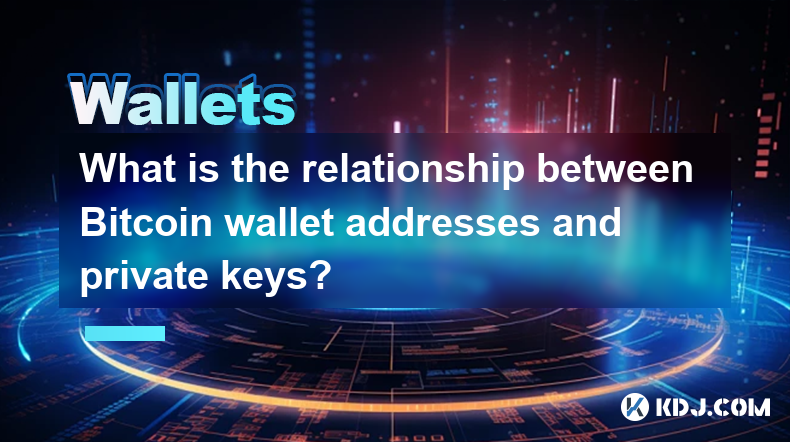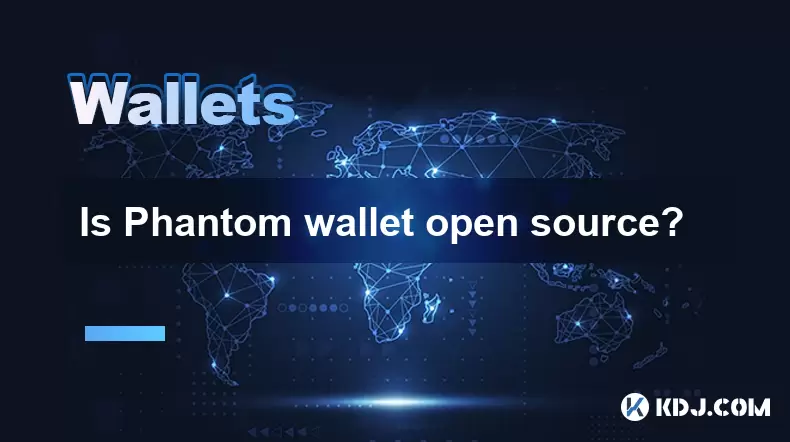-
 Bitcoin
Bitcoin $108,262.4325
-1.40% -
 Ethereum
Ethereum $2,518.2882
-2.94% -
 Tether USDt
Tether USDt $1.0003
-0.01% -
 XRP
XRP $2.2262
-1.71% -
 BNB
BNB $653.9254
-1.55% -
 Solana
Solana $148.1036
-3.11% -
 USDC
USDC $1.0000
0.01% -
 TRON
TRON $0.2829
-1.45% -
 Dogecoin
Dogecoin $0.1639
-4.82% -
 Cardano
Cardano $0.5742
-4.43% -
 Hyperliquid
Hyperliquid $38.9506
-3.95% -
 Sui
Sui $2.9040
-4.34% -
 Bitcoin Cash
Bitcoin Cash $484.8307
-2.62% -
 Chainlink
Chainlink $13.1971
-3.73% -
 UNUS SED LEO
UNUS SED LEO $9.0822
0.51% -
 Avalanche
Avalanche $17.8613
-4.01% -
 Stellar
Stellar $0.2385
-2.26% -
 Toncoin
Toncoin $2.7570
-3.88% -
 Shiba Inu
Shiba Inu $0.0...01145
-3.99% -
 Litecoin
Litecoin $86.9999
-2.43% -
 Hedera
Hedera $0.1538
-3.90% -
 Monero
Monero $313.7554
-2.03% -
 Polkadot
Polkadot $3.3681
-5.08% -
 Dai
Dai $1.0000
0.00% -
 Ethena USDe
Ethena USDe $1.0001
-0.01% -
 Bitget Token
Bitget Token $4.4401
-2.97% -
 Uniswap
Uniswap $6.9644
-8.41% -
 Pepe
Pepe $0.0...09666
-4.79% -
 Aave
Aave $266.5686
-5.04% -
 Pi
Pi $0.4713
-4.95%
What is the relationship between Bitcoin wallet addresses and private keys?
Your Bitcoin wallet address, like a mailbox number, is public; your private key, like the mailbox key, is secret and crucial for accessing your funds. Losing the private key means losing your Bitcoin.
Mar 15, 2025 at 05:50 pm

Key Points:
- Bitcoin wallet addresses are publicly visible identifiers used to receive and send Bitcoin. They are derived from your private key, but revealing your address doesn't compromise your funds.
- Private keys are secret cryptographic codes that grant you sole ownership and control over your Bitcoin. They are crucial for authorizing transactions. Losing your private key means losing access to your Bitcoin.
- The relationship is one-way: a private key generates a wallet address, but a wallet address cannot reveal the private key.
- Different types of wallets handle private key storage and management differently, impacting security and user experience.
- Understanding this relationship is fundamental for secure Bitcoin management.
What is the relationship between Bitcoin wallet addresses and private keys?
A Bitcoin wallet address and a private key are fundamentally linked, yet represent distinct aspects of Bitcoin ownership and transaction management. Think of a wallet address as your publicly visible mailbox number, while the private key is the key to that mailbox. You can share your address freely to receive Bitcoin, but revealing your private key is akin to giving someone access to all your funds.
The private key is a long string of characters, essentially a cryptographic code. It’s a randomly generated number used to sign transactions, proving your ownership and authorizing the transfer of Bitcoin. This process is secured through sophisticated cryptography. Without the correct private key, nobody can spend the Bitcoin associated with a particular address.
A wallet address, on the other hand, is derived from your private key through a one-way cryptographic function. This function ensures that, even if you know the address, it’s computationally infeasible to reverse-engineer and discover the associated private key. This is critical for security. Your address can be shared publicly without compromising your funds.
The process of generating a wallet address from a private key involves cryptographic hashing algorithms. These algorithms take the private key as input and produce a unique wallet address. This ensures that each private key generates a unique, corresponding wallet address. The process is deterministic, meaning the same private key will always generate the same address.
How are private keys generated and stored?
Private keys are randomly generated by your Bitcoin wallet software. The randomness is crucial for security; predictable keys are vulnerable. The wallet software then uses cryptographic functions to derive the corresponding public key and wallet address.
The storage of private keys is paramount. Different wallets employ different methods. Some wallets store the keys directly on your device (e.g., hardware wallets, desktop wallets), while others may store them on servers (e.g., online wallets, exchange wallets). The security implications vary greatly. Hardware wallets are generally considered the most secure option because the private keys never leave the physical device.
What happens if I lose my private key?
Losing your private key effectively means losing access to your Bitcoin. Since the private key is the only way to authorize transactions, without it, there's no way to recover your funds. There are no backdoors or recovery mechanisms controlled by a central authority. This underscores the importance of diligently backing up your private keys and practicing secure storage methods.
Can I have multiple wallet addresses from one private key?
No, a single private key corresponds to a single Bitcoin address. However, you can generate multiple private keys, each with its corresponding wallet address. This is a common practice for enhancing privacy and security. You might use one address for regular transactions and another for receiving larger sums, for instance. Managing multiple addresses is handled through your chosen wallet software.
What are the different types of Bitcoin wallets?
Several types of Bitcoin wallets exist, each with its own approach to private key management:
- Hardware wallets: These are physical devices that store your private keys offline, providing the highest level of security.
- Software wallets: These are applications installed on your computer or mobile device. They can be either desktop wallets or mobile wallets. Security depends heavily on the software's design and your security practices.
- Online wallets: These are web-based wallets hosted by third-party providers. While convenient, they present a greater risk as your private keys are stored on their servers.
- Paper wallets: These involve printing your private key and public address onto paper for offline storage. They offer a high degree of security if stored safely but lack the convenience of other wallet types.
What are the security implications of sharing my Bitcoin wallet address?
Sharing your Bitcoin wallet address is generally safe. It’s analogous to sharing your email address. The address only allows others to send Bitcoin to you; it doesn't give them any control over your funds or access to your private key.
Common Questions and Answers:
Q: Is it safe to use online wallets?
A: Online wallets offer convenience but carry higher security risks compared to hardware or desktop wallets, as your private keys are stored on a server controlled by a third party.
Q: How do I choose the right Bitcoin wallet?
A: Consider your technical skills, security needs, and convenience preferences when choosing a wallet. For maximum security, hardware wallets are recommended.
Q: Can I recover my Bitcoin if I lose my private key?
A: No, without your private key, your Bitcoin is irretrievably lost. There's no central authority that can help you recover it.
Q: What is the difference between a public key and a private key?
A: A private key is secret and allows you to spend your Bitcoin. A public key is derived from the private key and forms the basis for your Bitcoin address; it is publicly shared.
Q: How can I protect my private keys?
A: Store your private keys offline in a secure location, ideally using a hardware wallet or a well-protected paper wallet. Never share your private keys with anyone. Regularly back up your keys but keep them in multiple secure locations.
Disclaimer:info@kdj.com
The information provided is not trading advice. kdj.com does not assume any responsibility for any investments made based on the information provided in this article. Cryptocurrencies are highly volatile and it is highly recommended that you invest with caution after thorough research!
If you believe that the content used on this website infringes your copyright, please contact us immediately (info@kdj.com) and we will delete it promptly.
- Bitcoin's Pattern Break: Are HODLers the Key to the Next Surge?
- 2025-07-04 18:50:12
- Bitcoin Price, Trump's Bill, and the $150K Dream: A NYC Take
- 2025-07-04 19:50:12
- Ethereum, LILPEPE, and the July Bounce: Will Pepe Steal ETH's Thunder?
- 2025-07-04 19:10:12
- Binance Institutional Loans: Unlocking 4x Leverage and Zero Interest for Whales
- 2025-07-04 19:15:12
- Bitcoin Bull Run: Analysts Eye Peak in Late 2025?
- 2025-07-04 19:20:13
- Pepe Indicators, Bullish Forecast: Can the Meme Coin Rally?
- 2025-07-04 19:25:12
Related knowledge

How to cancel a pending transaction in Phantom wallet?
Jul 03,2025 at 07:21pm
Understanding Pending Transactions in Phantom WalletA pending transaction in the Phantom wallet occurs when a user initiates a transfer or interaction with the Solana blockchain, but it hasn't yet been confirmed by the network. This can happen due to various reasons such as low transaction fees, network congestion, or incorrect gas settings. It's import...

How to see the estimated value of my tokens in Phantom wallet?
Jul 04,2025 at 12:21am
What is Phantom Wallet?Phantom wallet is one of the most popular cryptocurrency wallets designed for the Solana blockchain. It allows users to store, send, receive, and manage various tokens built on Solana, including SPL tokens and NFTs. The wallet offers a user-friendly interface, making it accessible for both beginners and advanced users in the crypt...

How to lock my Phantom wallet extension?
Jul 03,2025 at 11:14am
What Is the Phantom Wallet and Why Lock It?The Phantom wallet is a popular non-custodial cryptocurrency wallet designed for interacting with the Solana blockchain. Supporting both browser extensions and mobile apps, Phantom allows users to store, send, receive, and stake SOL tokens, as well as interact with decentralized applications (dApps). Securing y...

Does Phantom wallet offer two-factor authentication (2FA)?
Jul 03,2025 at 09:00am
Understanding Phantom Wallet and Its Security FeaturesPhantom wallet is a widely used non-custodial cryptocurrency wallet that supports the Solana blockchain. It allows users to store, send, receive, and interact with decentralized applications (dApps) seamlessly. As security is a top priority for any crypto wallet user, security features like two-facto...

What is "rent" on Solana and how does it affect my Phantom wallet?
Jul 02,2025 at 08:35pm
Understanding 'Rent' on SolanaIn the context of Solana, the term 'rent' refers to a storage fee that users pay for maintaining data on the blockchain. Unlike Ethereum, where storage costs are paid once via gas fees during contract deployment, Solana implements a recurring cost model to ensure efficient usage of network resources. This means that any acc...

Is Phantom wallet open source?
Jul 03,2025 at 12:29am
What is Phantom Wallet?Phantom wallet is a non-custodial cryptocurrency wallet primarily designed for the Solana blockchain. It allows users to store, send, receive, and interact with decentralized applications (dApps) on the Solana network. The wallet is available as a browser extension and mobile application, offering a seamless experience for both be...

How to cancel a pending transaction in Phantom wallet?
Jul 03,2025 at 07:21pm
Understanding Pending Transactions in Phantom WalletA pending transaction in the Phantom wallet occurs when a user initiates a transfer or interaction with the Solana blockchain, but it hasn't yet been confirmed by the network. This can happen due to various reasons such as low transaction fees, network congestion, or incorrect gas settings. It's import...

How to see the estimated value of my tokens in Phantom wallet?
Jul 04,2025 at 12:21am
What is Phantom Wallet?Phantom wallet is one of the most popular cryptocurrency wallets designed for the Solana blockchain. It allows users to store, send, receive, and manage various tokens built on Solana, including SPL tokens and NFTs. The wallet offers a user-friendly interface, making it accessible for both beginners and advanced users in the crypt...

How to lock my Phantom wallet extension?
Jul 03,2025 at 11:14am
What Is the Phantom Wallet and Why Lock It?The Phantom wallet is a popular non-custodial cryptocurrency wallet designed for interacting with the Solana blockchain. Supporting both browser extensions and mobile apps, Phantom allows users to store, send, receive, and stake SOL tokens, as well as interact with decentralized applications (dApps). Securing y...

Does Phantom wallet offer two-factor authentication (2FA)?
Jul 03,2025 at 09:00am
Understanding Phantom Wallet and Its Security FeaturesPhantom wallet is a widely used non-custodial cryptocurrency wallet that supports the Solana blockchain. It allows users to store, send, receive, and interact with decentralized applications (dApps) seamlessly. As security is a top priority for any crypto wallet user, security features like two-facto...

What is "rent" on Solana and how does it affect my Phantom wallet?
Jul 02,2025 at 08:35pm
Understanding 'Rent' on SolanaIn the context of Solana, the term 'rent' refers to a storage fee that users pay for maintaining data on the blockchain. Unlike Ethereum, where storage costs are paid once via gas fees during contract deployment, Solana implements a recurring cost model to ensure efficient usage of network resources. This means that any acc...

Is Phantom wallet open source?
Jul 03,2025 at 12:29am
What is Phantom Wallet?Phantom wallet is a non-custodial cryptocurrency wallet primarily designed for the Solana blockchain. It allows users to store, send, receive, and interact with decentralized applications (dApps) on the Solana network. The wallet is available as a browser extension and mobile application, offering a seamless experience for both be...
See all articles

























































































